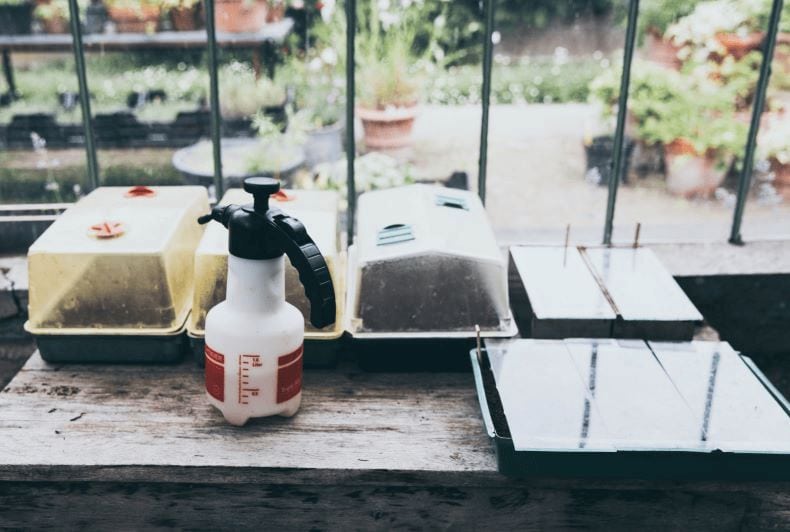
Are you or a loved one grappling with the aftermath of exposure to Roundup weed killer? If so, you’re not alone. Thousands have faced similar challenges and sought justice through Roundup cancer lawsuits. This comprehensive guide is your compass through the intricate landscape of Roundup litigation, offering insights into a Roundup cancer trial, options, and the steps to pursue fair recovery.
Who Is Eligible for Roundup Claim?
Despite being a widely used herbicide, scientific evidence has raised concerns about Roundup‘s potential risks. Studies by the International Agency for Research on Cancer (IARC) flagged glyphosate, an active ingredient in Roundup, as a probable human carcinogen.
If you’ve been diagnosed with non-Hodgkin’s lymphoma (NHL) or other related health issues after exposure to Roundup, you might qualify for a Roundup compensation lawsuit. Bayer AG, the parent company of Monsanto, which produces Roundup, has faced intense legal scrutiny due to these Roundup weedkiller cancer lawsuits and paid billions to settle cases.
Who’s at Risk of Developing Cancer from Roundup Weed Killer?
Roundup is still in use as a weedkiller. Therefore, it may keep harming people, probably putting them at risk of developing cancer. Here are the people who are the most exposed to this carcinogenic substance:
Users and Handlers: Individuals directly handling or using Roundup, such as farmers, gardeners, landscapers, and agricultural workers, face significant exposure risks due to regular contact with the herbicide during application.
Residential Users: Homeowners and individuals using Roundup for personal gardening or weed control purposes also face potential exposure risks, especially if they’ve used the product extensively over time without protective measures.
Environmental Factors: Exposure isn’t limited to direct users. Those living near areas where Roundup is heavily used, like agricultural zones or public spaces where the herbicide is applied, might also face exposure risks through environmental contamination.
If you have developed cancer due to the long exposure to Roundup, you must seek action immediately. Hire experienced roundup lawyers to fight for your rights and get you fair compensation.
Who Can File a Roundup Cancer Lawsuit?
Individuals with Health Issues: Individuals who have been diagnosed with health issues such as non-Hodgkin’s lymphoma, b-cell lymphoma, or other related conditions that they believe are linked to Roundup exposure may have grounds to file a lawsuit seeking compensation.
Family Members: In cases where an individual has passed away due to health complications linked to Roundup exposure, their family members or representatives may pursue legal action on behalf of the deceased through wrongful death claims.
Legal Guardians: For individuals who are unable to pursue legal action themselves due to incapacitation resulting from health issues related to Roundup exposure, legal guardians or representatives may act on their behalf.
How Can You File a Roundup Lawsuit?
Filing a Roundup cancer lawsuit, especially during your treatment, can be challenging physically and emotionally. Therefore, you should consider following the given steps that could make it easier for you to pursue the claim and seek justice.
Consultation with an Attorney
The first step in filing a lawsuit related to Roundup exposure is to seek legal counsel. You should consult with an experienced attorney specializing in Roundup litigation. They will evaluate your case, advise on the legal options available, and guide you through the entire process.
Case Assessment and Documentation
Make sure to gather and organize relevant documentation. This may include medical records detailing the diagnosis, treatment history, proof of Roundup exposure, purchase history of the product, and any other relevant evidence you may have.
Filing a Complaint
Once the attorney has assessed your case’s viability, they will draft and file a complaint with the appropriate court (the Supreme Court, e.g.,) outlining the allegations against Bayer/Monsanto and the damages sought.
Pretrial Proceedings
After filing, pretrial procedures commence. This includes the exchange of information, evidence discovery, and possibly participation in mediation or settlement discussions.
Trial Preparation and Representation
If the case proceeds to trial, the attorney will prepare your case diligently, including witness testimonies, expert opinions, and legal arguments to present before the court. Throughout the trial, the attorney will represent your interests.
Verdict and Potential Compensation
At the trial’s conclusion, a verdict is reached. If your claim prevails, you may receive compensation for damages determined by the court or through a negotiated settlement between the parties.

What Type of Legal Proceedings Can You Opt for in Roundup Cancer Lawsuits?
There’s a spectrum of legal terms floating around—multi-district litigation (MDL), class action lawsuits, jury trials, and more. But what do they mean for you?
Multidistrict Litigation (MDL)
MDL is a legal procedure employed in federal courts to manage multiple lawsuits involving similar issues. In the case of Roundup, numerous individuals who have suffered health issues after exposure may file separate lawsuits against Bayer/Monsanto.
These cases could be consolidated into Roundup MDL to streamline pretrial proceedings such as evidence discovery, witness testimonies, and expert opinions while preserving the individuality of each case.
Roundup Class Action Lawsuit
Class action lawsuits are filed by a group of individuals with similar claims against the same defendant, in this case, Bayer/Monsanto. The lawsuit represents a class of plaintiffs affected by Roundup exposure. The court appoints a representative or lead plaintiff to act on behalf of the entire class.
One significant aspect of a class action suit is that the resolution applies to all members of the class. If successful, the compensation or settlement agreed upon in the lawsuit is distributed among all eligible members, typically after deducting legal fees and administrative costs.
Jury Trials
Unlike MDL or class actions, a jury trial involves an individual plaintiff’s case being heard in court. Evidence is presented, arguments are made, and a jury assesses the facts to reach a verdict that allows for a thorough examination of the specific details and circumstances of the plaintiff’s exposure to Roundup.
If the jury finds in favor of the plaintiff, they may be awarded compensation for damages, including medical expenses, pain and suffering, and possibly punitive damages.
What Type of Roundup Lawsuits Can Be Filed?
Product Liability Claims
One prominent legal avenue for Roundup-related issues is a product liability claim. This lawsuit holds the manufacturer, Bayer/Monsanto, responsible for the harm caused by their product, alleging that Roundup was defective or lacked proper warnings about potential health risks.
Negligence Claims
Negligence claims focus on Bayer/Monsanto’s failure to warn consumers adequately about the potential dangers of Roundup. This legal approach asserts that the company knew or should have known about the health risks associated with their product but failed to disclose this information.
Failure to Warn Claims
This legal strategy revolves around asserting that Bayer/Monsanto did not provide sufficient warnings or instructions regarding the potential health hazards of Roundup, thus failing in their duty to caution consumers about the risks involved in using the product.
Wrongful Death Claims
Wrongful death claims are filed by the surviving family members or representatives of an individual who has passed away due to health complications associated with Roundup exposure. These claims assert that Bayer/Monsanto’s negligence or defective product directly contributed to the deceased individual’s illness and subsequent death. They seek compensation for the damages incurred by the family due to the loss of their loved one.
What Type of Damages Can a Roundup Cancer Lawsuit Cover?
Roundup trials and cases can offer compensation for different types of damages. Here are some of the expenses that the proposed settlement may cover:
Medical Expenses: Individuals affected by Roundup exposure may seek Roundup settlement for medical bills resulting from their health issues. This includes expenses related to diagnosis, treatment, surgeries, medications, and ongoing medical care.
Pain and Suffering: Roundup settlements may also cover the physical pain, emotional distress, and mental anguish experienced due to health complications caused by Roundup exposure. These damages aim to alleviate the non-financial toll on the affected individuals.
Lost Income and Future Earnings: For those unable to work due to health issues caused by Roundup exposure, compensation can include lost wages and future earning potential. This encompasses both current income loss and potential diminished capacity to work in the future.
Punitive Damages: In certain cases where Bayer/Monsanto’s conduct is deemed particularly reckless or malicious, punitive damages might be awarded. These are intended to punish the defendant and deter similar conduct in the future.
Why Should You Hire Roundup Lawyers?
If you’re thinking about filing a Roundup cancer lawsuit, you should consider hiring a Roundup lawyer. While you focus on your recovery, these lawyers can seek justice for you and get you the compensation you deserve.
Here’s how Roundup lawyers are still helping hundreds of victims:
Legal Expertise and Guidance:
Navigating the complexities of Roundup lawsuits demands legal expertise. Attorneys specializing in these cases possess knowledge of the laws, precedents, and strategies needed to build a strong case on your behalf.
Case Assessment and Evaluation:
Experienced attorneys can evaluate the specifics of your situation, determining the viability of your case and the potential compensation you might be entitled to based on the circumstances.
Representation and Advocacy:
Attorneys serve as your advocates, representing your interests and fighting for fair compensation. They negotiate with the defendant’s legal team and insurance companies, aiming to secure the best possible outcome for you.
Courtroom Experience:
If your case goes to Roundup trial, attorneys bring their courtroom experience and litigation skills to present your case effectively before a judge and jury, maximizing your chances of a favorable verdict.
Contingency Fee Arrangements:
Many Roundup lawsuit attorneys work on a contingency fee basis, meaning they only get paid if you receive compensation. This arrangement often eases financial burdens for plaintiffs, allowing access to legal representation without upfront costs.
Is It Too Late to Join the Roundup Lawsuit?
Since Roundup cases are still piling up and take long to settle (two to three years), it’s high time to pursue a Roundup cancer lawsuit. However, you must consider the statute of limitations for your state. Most states have a window of 2 to 4 years for personal injury or wrongful death claims.
In some instances, the statute of limitations might begin from the date when the individual became aware of or should have reasonably known, about the link between their health issues and Roundup exposure. This “discovery rule” allows the clock to start ticking when the harm becomes apparent rather than from the date of exposure.
Hence, find yourself a reliable lawyer who can take action promptly and help you seek fair compensation.

Schedule Your Free Case Review with BLG Today
The path toward fair recovery, if you were exposed to Roundup, involves understanding your rights, navigating legal complexities, and seeking knowledgeable guidance. Remember, you’re not alone in this fight, and seeking legal counsel can make a significant difference in the outcome.
Filing Roundup lawsuit claims? Consider contacting us at BLG, where our dedicated team specializes in Roundup claims. We offer a free consultation to evaluate your case, providing personalized guidance and support tailored to your situation.
Don’t navigate this complex terrain alone—reach out to our Roundup lawyers today.
FAQs
Q. Who can file a lawsuit related to Roundup exposure?
A. Anyone diagnosed with health issues believed to be linked to Roundup exposure can file a lawsuit. Family members may also file on behalf of deceased loved ones.
Q. What is the average payout per person for the Roundup lawsuit?
A. The average payout varies widely as settlements depend on individual circumstances, severity of health issues, evidence presented, and other factors. However, the payout typically ranges between $5,000 to over $250,000.
Q. What cancers are included in the Roundup lawsuit?
A. Non-Hodgkin’s lymphoma, b-cell lymphoma, and other cancers are frequently linked to Roundup exposure, along with other health complications.
Q. Has anyone received any money from the Roundup lawsuit?
A. Yes, many individuals have received compensation through settlements or verdicts in Roundup lawsuits. Bayer has so far paid close to $10.9 billion to settle in different cases.
Q. How long does a Roundup lawsuit take to settle?
A. The duration of a Roundup lawsuit’s resolution varies significantly depending on factors such as trial schedules, complexities of the case, and negotiation periods. Typically, it takes two to three years for the settlement in these cases.
Q. What proof do you need for a Roundup lawsuit?
A. Essential evidence includes medical records documenting health issues, proof of Roundup exposure, purchase history of the product, expert opinions linking health issues to Roundup, and any relevant documentation supporting the case.




